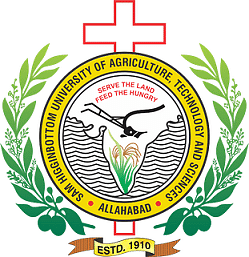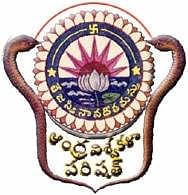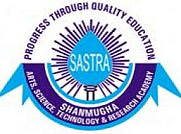Introduction
About Doctor Of Literature (D.Litt) In India
The Doctor of Literature (D.Litt) is a prestigious academic
degree awarded in India, recognizing outstanding contributions to the field of
literature. It is typically conferred upon scholars who have demonstrated
exceptional mastery in their chosen literary discipline through extensive
research, publications, and critical analysis.
In The Top University Of India, the D.Litt degree holds significant importance, not only within the academic community but also in society at large, as it symbolizes the highest level of achievement and
expertise in literature. The title of "Doctor" conveys a sense of
authority and respectability, acknowledging the recipient's profound understanding and profound impact on the literary landscape.
The process of earning a D.Litt in India involves rigorous
academic study, usually spanning several years, during which candidates delve
deeply into their chosen area of specialization within literature. They conduct
original research, produce scholarly works, and engage in critical discourse
that contributes to the advancement of knowledge in their field.
Candidates for the D.Litt degree in India typically defend a
doctoral thesis or dissertation before a panel of experts, demonstrating their
expertise, originality, and contribution to the broader literary discourse.
Successful completion of this process is a testament to the candidate's
scholarly excellence and marks them as a leading authority in their particular
area of literary study.
Upon receiving the D.Litt degree, scholars are recognized not
only for their academic achievements but also for their potential to influence
and shape the future of literature in India and beyond. They often assume
leadership roles in academia, publishing, cultural institutions, and public
discourse, further cementing their status as luminaries in the world of
letters.
In conclusion, the Doctor of Literature (D.Litt) degree in Top
And Affordable University Of India represents the pinnacle of academic
achievement in the field of literature. It is conferred upon individuals who
have made profound contributions to the advancement of knowledge, critical
inquiry, and cultural enrichment through their scholarly endeavors, marking
them as esteemed authorities and leaders within the literary community.
Admission
Process For Doctor Of Literature (D.Litt)
The
admission process for a Doctor of Literature (D.Litt) program in India
typically varies depending on The Best University Of India or
institution offering the degree. However, there are some general steps and
criteria that are commonly followed:
- Eligibility Criteria: Candidates must usually possess a
relevant Master's degree in Literature or a related field from a
recognized university or institution. Some universities may require a
minimum percentage or grade point average (GPA) in the qualifying
examination.
- Research Proposal: Prospective candidates are often
required to submit a detailed research proposal outlining their intended
area of study, research objectives, methodology, and expected outcomes.
This proposal is crucial as it demonstrates the candidate's research interests
and capabilities.
- Entrance Examination: Some universities may conduct an
entrance examination as part of the selection process. The examination may
assess the candidate's aptitude for research, critical thinking skills,
and subject-specific knowledge.
- Interview:
Shortlisted candidates may be called for a personal interview or viva voce
conducted by a panel of faculty members. The interview allows the
selection committee to assess the candidate's suitability for doctoral
research, research potential, and clarity of research goals.
- Publication Requirement: In some cases, candidates may need
to demonstrate a track record of publications in reputed academic journals
or conferences related to their field of study. This requirement showcases
the candidate's research capabilities and academic standing.
- Letters of Recommendation: Candidates are usually required to
submit letters of recommendation from academic referees who can attest to
the candidate's academic abilities, research potential, and suitability
for doctoral studies.
- Academic Transcripts: Applicants must provide official
transcripts of their academic records, including details of courses
completed, grades obtained, and degrees awarded.
- Application Form: Candidates must complete and
submit the prescribed application form along with all required documents
and application fees within the specified deadline.
- Selection Process: The selection committee evaluates
the applications based on various criteria such as academic
qualifications, research proposal, entrance examination scores (if
applicable), interview performance, and overall suitability for the
program.
- Offer of Admission: Successful candidates receive an
offer of admission from the university or institution. They are then
required to fulfill any additional admission requirements, such as payment
of fees and registration for the program.
It's essential for
prospective candidates to carefully review the specific admission guidelines
and requirements provided by the university or institution offering the D.Litt
program to ensure they meet all criteria and submit a strong application.
Subject And
Syllabus For Doctor Of Literature (D.Litt)
The subjects and syllabus for a Doctor of Literature
(D.Litt) program in India can vary significantly depending on the university or
institution offering the degree, as well as the specific area of specialization
chosen by the candidate. However, here is a general overview of potential
subjects and topics that may be covered in a D.Litt program:
- Literary Theory and Criticism: This subject delves into various theoretical
frameworks and critical approaches to the study of literature, including
structuralism, post-structuralism, feminism, Marxism, psychoanalysis,
postcolonialism, and ecocriticism.
- Literary History and Periods: Candidates may study the historical development of
literature across different periods, genres, and regions, analyzing key
literary movements, authors, texts, and socio-cultural contexts.
- Genre Studies:
This subject focuses on the analysis and interpretation of specific
literary genres such as poetry, fiction, drama, autobiography, essay, and
non-fiction prose, exploring their formal features, conventions, and
thematic concerns.
- Comparative Literature:
Candidates may engage in comparative studies of literature across
different languages, cultures, and national traditions, examining themes,
motifs, and narrative techniques that transcend geographical boundaries.
- Specialized Topics and Themes: D.Litt candidates often pursue research in
specialized topics or thematic areas within literature, such as:
- Postcolonial Literature
- Indian Writing in English
- Dalit Literature
- Feminist Literature
- Environmental Literature
- Literary Translation
- Literary Adaptation and Reception Studies
- Mythology and Folklore Studies
- Research Methodology:
Candidates are typically introduced to various research methods and
techniques relevant to literary studies, including textual analysis,
archival research, ethnographic fieldwork, and digital humanities
approaches.
- Dissertation Research:
The core component of a D.Litt program is the completion of a doctoral
dissertation or thesis. Candidates conduct original research on a specific
topic or research question within their chosen area of specialization,
contributing new insights, interpretations, or methodologies to the field
of literature.
- Seminar Courses and Workshops: D.Litt programs often include seminar courses and
workshops where candidates present their research findings, engage in
scholarly discussions, receive feedback from faculty and peers, and refine
their research projects.
It's
important to note that the specific subjects and syllabus for a D.Litt program
may vary depending on factors such as the faculty expertise, research interests
of the candidates, and evolving trends in literary studies. Prospective
candidates should consult the program brochure or contact the respective
university or institution offering the D.Litt degree for detailed information
on the curriculum and course offerings.












